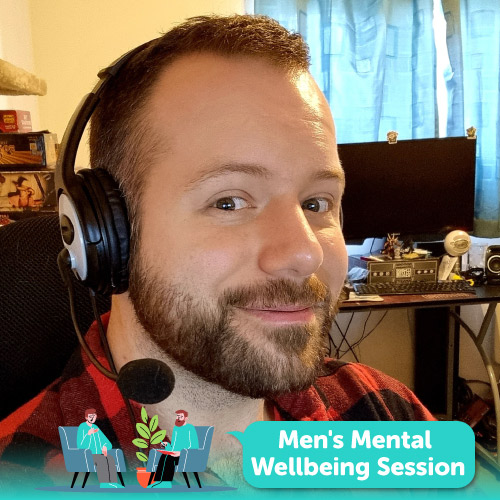Men’s Mental Wellbeing Session – Hear from the Group
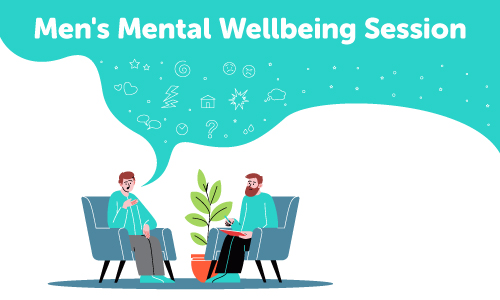
This article will take approximately 3 minutes to read
Published 18 Aug 2021 in Raising Awareness
In June, we held our first Men’s Mental Wellbeing listening group, which was facilitated by Paol Stuart-Thompson from MIND. As a result of the initial meeting, we are now introducing a monthly peer to peer support group for our male colleagues. Find out how you can take part in peer support and hear from some of the colleagues who attended the first-ever Men's wellbeing session.
Some statistics & why - did you know…
-
Three times as many men as women die by suicide.
-
Men aged 40-49 have the highest suicide rates in the UK
-
Men report lower levels of life satisfaction than women according to the Government’s national wellbeing survey
-
Men are less likely to access psychological therapies than women: only 36% of referrals to NHS talking therapies are for men
What is peer support?
Peer support is when people use their own experiences to help each other. There are different types of peer support, but they all aim to:
- bring together people with shared experiences to support each other,
- provide a space where you feel accepted and understood,
- treat everyone's experiences as being equally important,
- involve both giving and receiving support.
In peer support, everyone's views and experiences are equally valued, rather than anyone being seen as more of an expert than others. How much support you give and receive can vary depending on what feels right for you at different times.
Could peer support help me?
Lots of people find peer support improves their wellbeing and helps them cope with mental health problems. For example, it could:
- help you to open up about what you are feeling and experiencing
- introduce you to ideas and approaches that others have found helpful
- reassure you that you're not alone in how you are feeling
- help you to connect with others and give you a sense of belonging
- encourage you to value your strengths
- build your self-esteem and confidence
- help you to feel more hopeful about the future.
Peer support can be helpful on its own, or it can be something you try alongside treatments like talking therapies or medication. It can also be a helpful way of getting support if you're on a waiting list for one of these treatments.
If you would like to join the next Peer group meeting or would like any further information please contact Rebekah Brain here.
What did our colleagues think of the first session?
Let’s hear from some of our colleagues that attended the session in June…
Aaron Moore, Head of Travel Systems Operations – Travel
I’m Aaron, Head of Travel Systems Operations for the Travel Group, I have been with Midcounties for almost 2 years.
I joined the Men’s Mental Wellbeing Session because I was starting to feel somewhat stressed and unhappy in my role and wanted to see if this was just me overthinking and being paranoid or if other Men in the organisation were also having similar experiences. I’m a hard worker and always take pride in my work and do my best in my role, but I could never shake the fear of failure that I felt and listening to other people in the group who attended it seemed I was not alone and immediately made me feel better and taught me to stop beating myself up about things and to focus on the job in hand. Not only that, it made me realise that I should be more disciplined in my work approaches, such as leaving gaps in between calls/meetings, taking breaks, and ensuring I take time to take a drink or fresh air which is something I would often de-prioritise in order to get work done or progressed.
On a personal level too, it was interesting to hear if others had similar issues to mine, and what they would now do about it to improve how they feel. My biggest problem is that I struggle with my work/life balance and that I don’t switch off fully to spend quality time with my family which is something I’ve brought with me from my previous employment where I used to travel frequently and spend time away from home. Having listened to the group has helped me and has allowed me to make some changes in the way I approach my days but also I think the whole group got a lot out of the sessions and it was really pleasing that everyone opened up and got things off their mind and shared with the group where it would have been easier to say nothing. I was disappointed not more men were in attendance from the Society but I’m very pleased I attended as I wasn’t going to and I would certainly encourage others to join future ones and it was certainly an eye-opener and I feel so much better for it and grateful for the society for providing the opportunity.
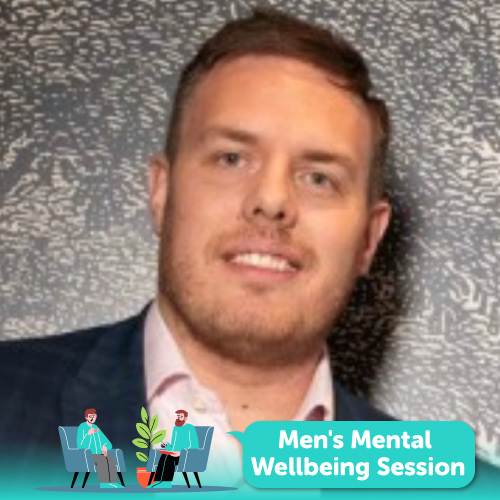
Alex Breeze, Click & Collect Buyer – Local Team
As a family, we recently lost a close friend to the effects of mental health. I feel it is more important than ever to be able to support those who are suffering from mental health issues. Getting people to talk about their challenges and removing the stigma is such a big part of it. I was interested in how I could better understand and be able to help those who are struggling. I feel the wellbeing sessions facilitate this and encourage colleagues to join.
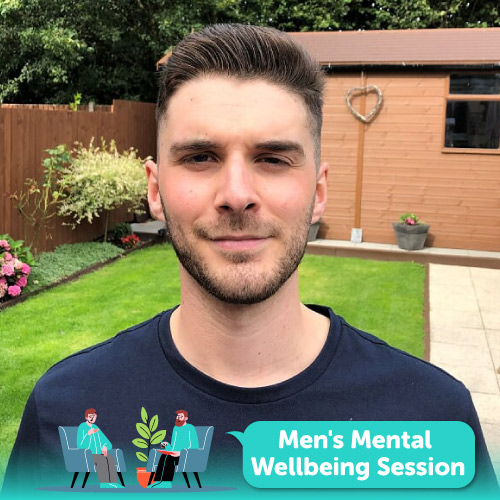
Andrew Fawlk, District Manager – Food
I am the Acting District Manager for Food and have always understood the importance of supporting mental health in the workplace. When the group was formed, I felt it was fantastic as it really started to bring the men together in the workplace and started to make the building blocks that is good to talk, support, be open and understand each other’s issues.
Mental health is something that is close to my heart and I am hoping this group will lead team Midcounties forward with supporting men’s mental health. With Men’s mental health being the biggest killer for Men we all need to do our bit to support each other and encourage all to talk when they feel they need support!
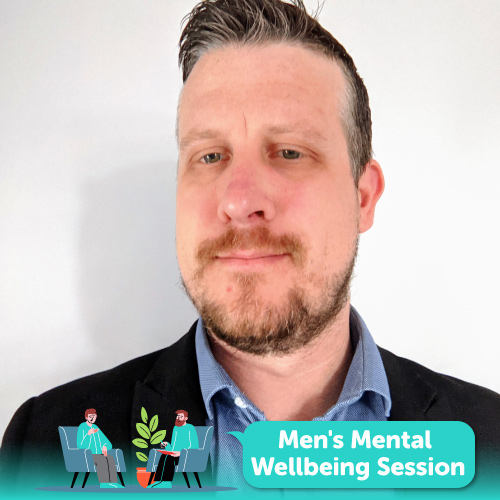
Rob Crowton, Travel Systems Analyst - Travel
I think the Men’s Mental Wellbeing Session's are so important to give men a platform to talk through issues that they are facing and to understand that they are not alone. It is not a sign of weakness to say you are struggling and the first step is to seek help and support from session’s like this that the Society is running.
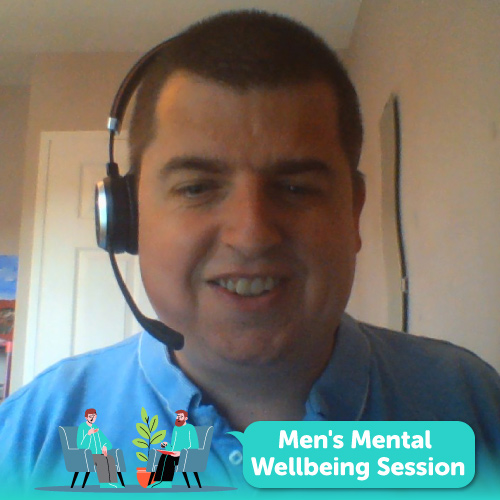
Steve Killick, Botley Food Market - Food
My name is Steve Killick and I work at Botley Food Market in Oxford but I am also a Mental Health Campaigner.
I wanted to join this group as getting involved with Mental Health is very personal to me as losing my Mum when I was 11 was one of the hardest things I have ever had to deal with and learning how to deal with these emotions was really hard. Through hard work and determination, I have managed to come through but it wasn’t easy.
For those who don’t know, I run a massive platform on social media now but getting involved with my company on this as we spend most of our lives in the workplace is so important. I feel that being open and honest about our emotions, not only helps us but also those around us to understand what is going on whether you are CEO or someone who does a few hours a week filling shelves. Showing vulnerability shows courage and strength, it shouldn’t be thought of as a weakness. We all have Mental Health and these groups show that NO ONE is alone, even though we are on different paths.
If you are struggling, then please reach out as there is support if you ever need it.
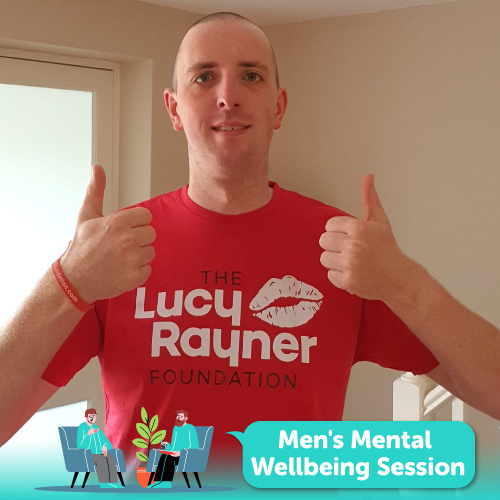
Stuart Newman, Head of Pharmacy Retail - Healthcare
I head up our Healthcare business and have worked for the Society for almost 21 years. I started with the business as a Customer Service Assistant in a Food store following school work experience and have worked through the ranks by managing large teams in our Food and Pharmacy businesses. One of the key things I have learnt through this time is that creating an environment for positive mental health and one that enables everyone to feel comfortable, confident and challenged is the key to individuals being successful both personally and professionally. I am extremely positive about the passion the Society has for understanding mental health and look forward to bringing about positive evolution in this area.
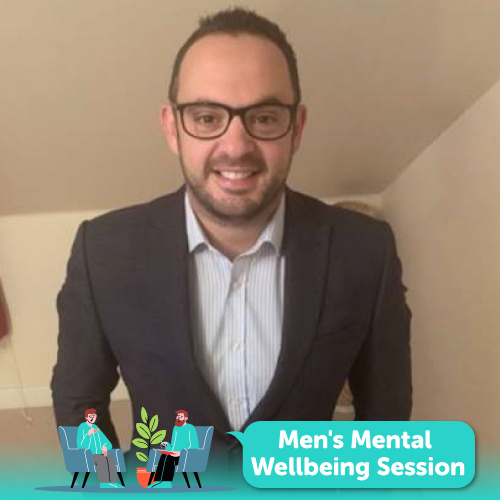
James Eales, Young Co-operators Network
Hi, I’m James Eales and I’m the Young Co-operators Network Co-ordinator and have worked for the Society since November 2018. I joined the Men’s Mental Wellbeing Session because I think it's important to tackle the stigma of discussing men’s mental health and the sessions allow me to find out ways to help my friends and colleagues as well as allowing me to find out more information about how to tackle any stress or anxiety I might have.
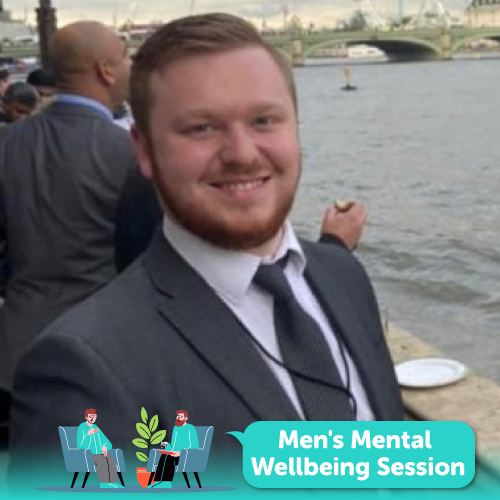
Reece Leel, HR
I’m a fellow Midcounties colleague working in the HR team in Support Services, I have just finished University and have begun my graduate scheme. The reason I joined the Men’s Mental Wellbeing Session is that I feel it’s an issue that is commonly overlooked, men sometimes don’t feel like they can talk about their emotions or open up about certain topics.
I joined the last mental health talk session along with some other colleagues and Paol Stuart-Thomson from MIND to discuss men's mental health, in particular, issues affecting men under 30. I personally found this session really beneficial, and also felt that I was able to share things that helped some of the other colleagues attending the session. Talking about these issues in confidence in groups allows us to relate and resonate with one and other, realising that there are other people ‘in the same boat as you’ and learning how they deal with these situations.
Overall I would recommend joining this group to other colleagues around the Society even if they feel that they have good mental health, to begin with, it’s something that’s definitely worth keeping on top of.
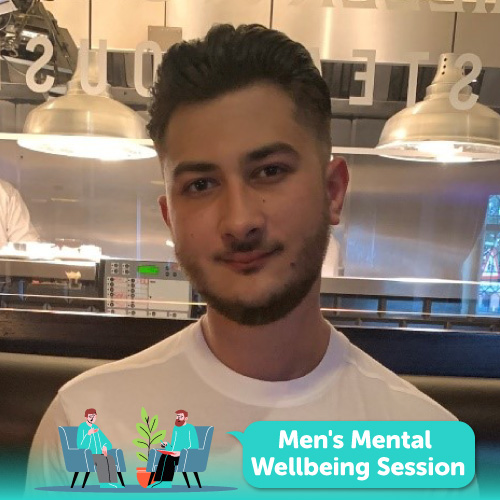
Dean Hajivasiliou, Retail Store Manager - Food
I am a Retail Store Manager with 20 years of service with the Society. I thought it was a fantastic idea to do a focus group regarding Men's Mental Health as it's an area that needs more attention. I really wanted to be a part of the focus group as it helps me understand what I can do to help fellow colleagues that may be suffering and don't feel comfortable coming forward to talk to us.
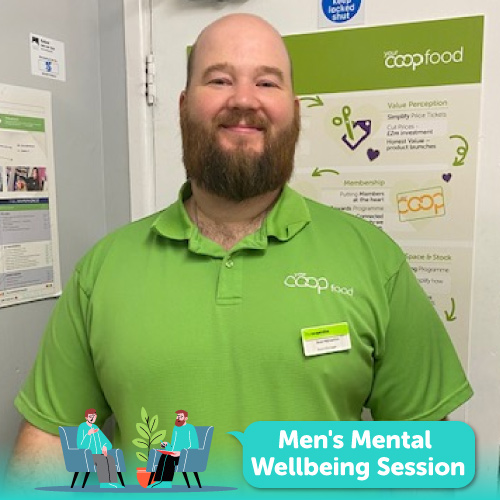
Ryan Mumford, District Manager, Food
I joined the Men's Mental Wellbeing group as mental health is such an important subject that often goes unnoticed. By forming this group of colleagues where there is a confidential platform to share thoughts, best practices and tackle the stigma around the subject. This is just one of the many fantastic ways the Society is supporting all colleagues with breaking down barriers regarding mental health and giving all the best places and advice to help those struggling. Even if someone has not suffered from mental health previously, it gives great insight into the challenges that others may be facing and may help the individuals later down the line should they require it.
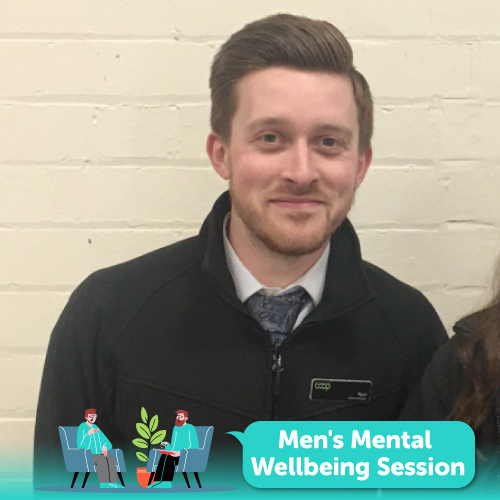
Robert Banks, Customer Service Advisor - Utilities
My name is Robert and I’m a firm believer in the importance of engaging in practices to improve our mental health, especially in an increasingly stressful landscape and environment. Talking about mental health isn’t a magic cure to fix the issues we face, but can prepare us to react in more positive ways to the challenges we’ll face in our day to day life and I’ve personally found that to be invaluable and hope to share that with others.
